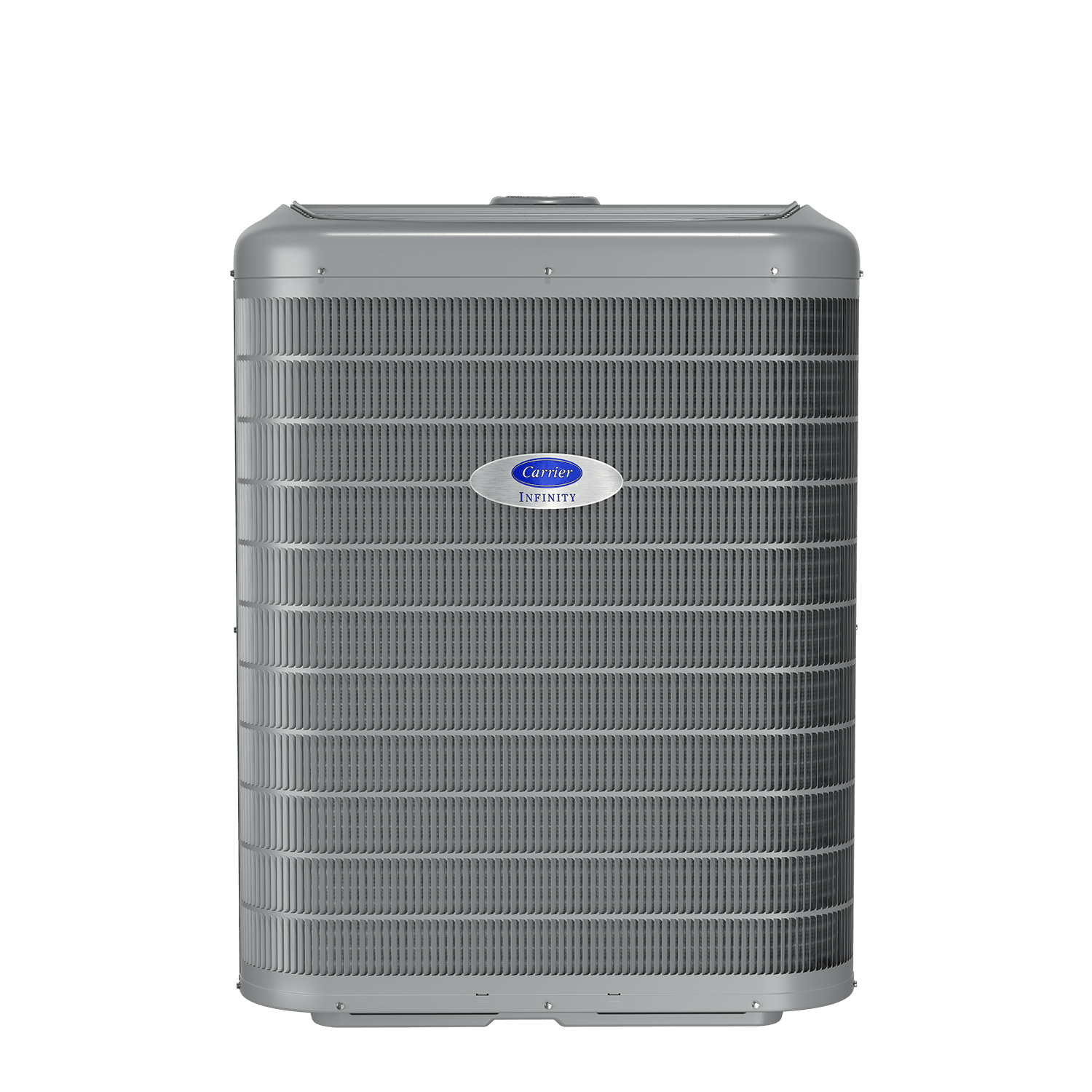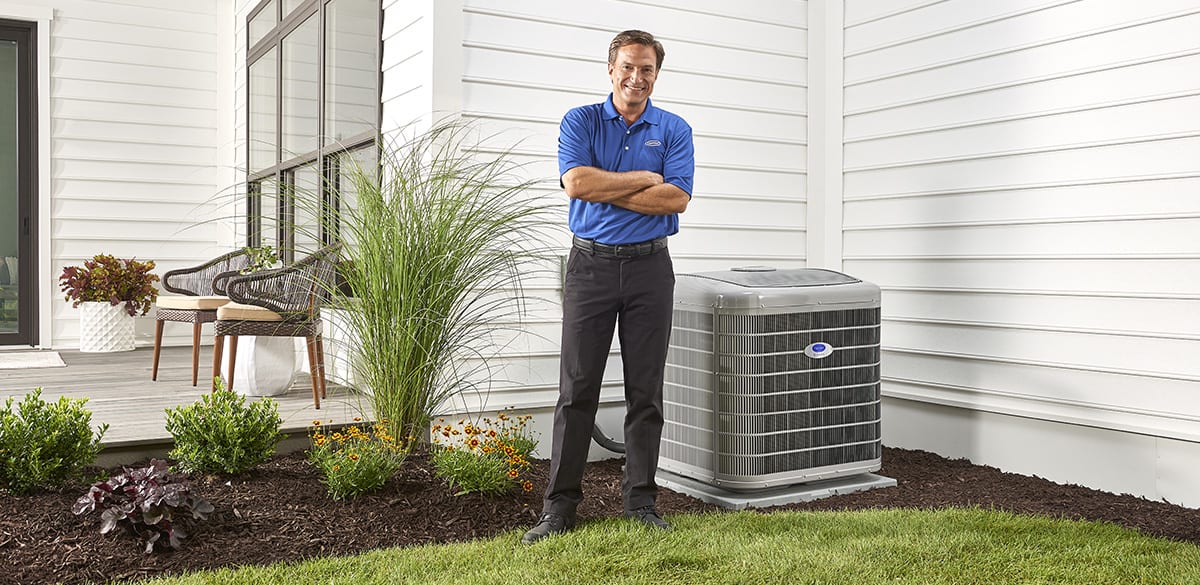Heat Pumps
Heat pumps provide versatile heating, cooling, and humidity control—they move heat outside your home in the summer and pull heat into your home in the winter. For those in moderate climates, where the temperature doesn't regularly drop below freezing, a heat pump can be the answer to both heat and cool your home for all your comfort needs.

Compare Heat Pump Product Lines
|
|||||||
|
|||||||
|
|||||||
|
|||||||
|
|||||||
|
|||||||
|
|||||||
|
|||||||
|
|||||||
|
|||||||
|
|||||||
|
|||||||
|
|||||||
One of our most advanced heat pumps with up to 21.2 SEER2 for premium energy savings with extremely quiet performance and premium comfort features. Able to maintain 100% heating capacity down to 0ºF.
Initial Cost $$$
Energy Savings:
Comfort Features:
Sound Performance:

Our highest efficiency and most advanced heat pump with up to 23 SEER2 for premium energy savings with extremely quiet performance and premium comfort features.
Initial Cost $$$
Energy Savings:
Comfort Features:
Sound Performance:

Our highest efficiency and most advanced heat pump with up to 23 SEER2 for premium energy savings with extremely quiet performance and premium comfort features.
Initial Cost $$$
Energy Savings:
Comfort Features:
Sound Performance:

Up to 19 SEER2 for premium energy savings with premium comfort features
Initial Cost $$$
Energy Savings:
Comfort Features:
Sound Performance:

Up to 20 SEER2 for premium energy savings with premium comfort features.
Initial Cost $$$
Energy Savings:
Comfort Features:
Sound Performance:

Up to 18.5 SEER2 for enhanced energy savings with enhanced comfort features. Features InteliSense™ technology
Initial Cost $$
Energy Savings:
Comfort Features:
Sound Performance:

Built to handle tough coastal air. Up to 18.5 SEER2 for enhanced energy savings with enhanced comfort features. Features InteliSense™ technology.
Initial Cost $$
Energy Savings:
Comfort Features:
Sound Performance:

Up to 16.5 SEER2 for enhanced energy savings with standard comfort features.
Initial Cost $$
Energy Savings:
Comfort Features:
Sound Performance:
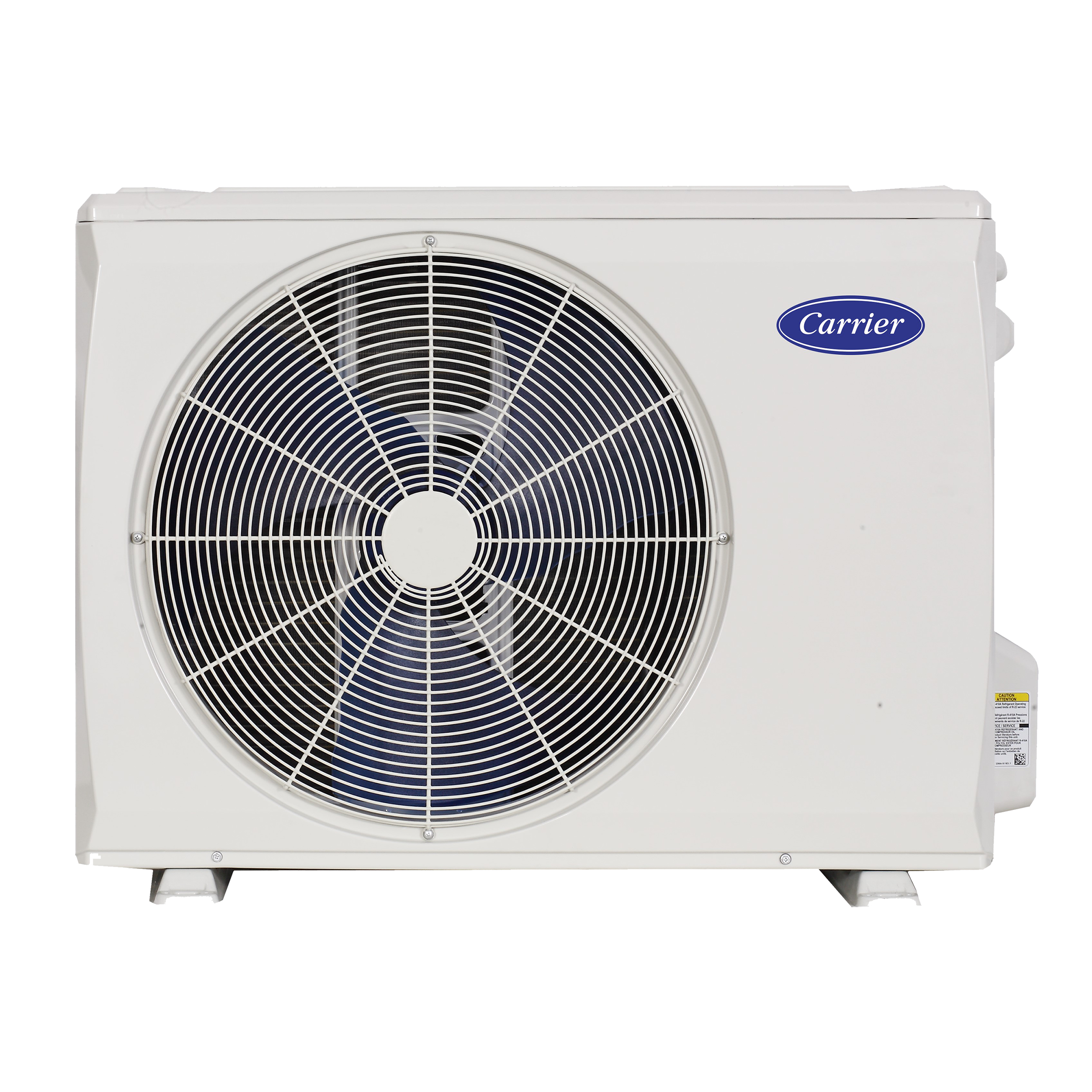
Initial Cost $$
Energy Savings Enhanced
Comfort Features Standard
Sound Performance Standard
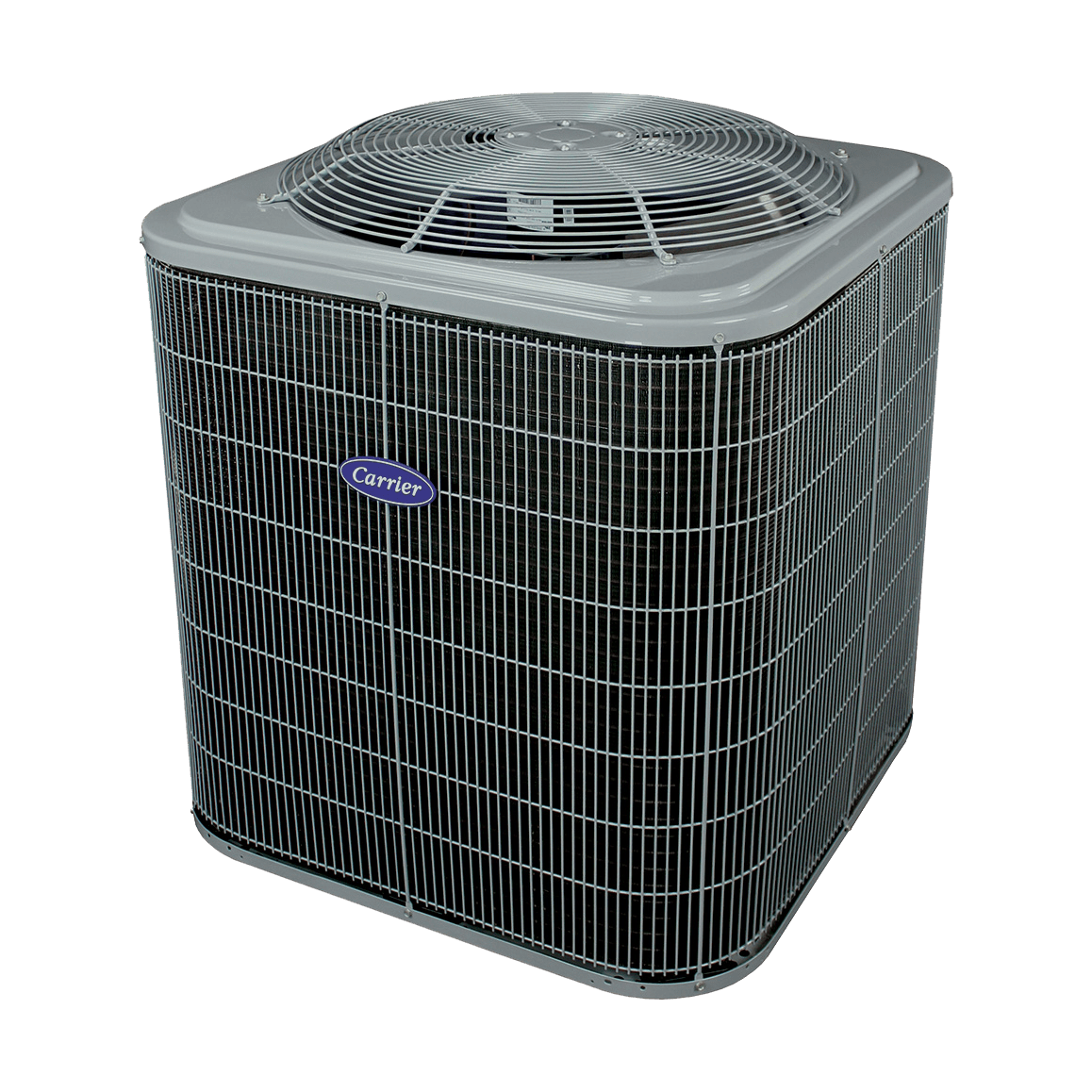
Up to 16 SEER2 for moderate energy savings with standard comfort features.
Initial Cost $
Energy Savings:
Comfort Features:
Sound Performance:
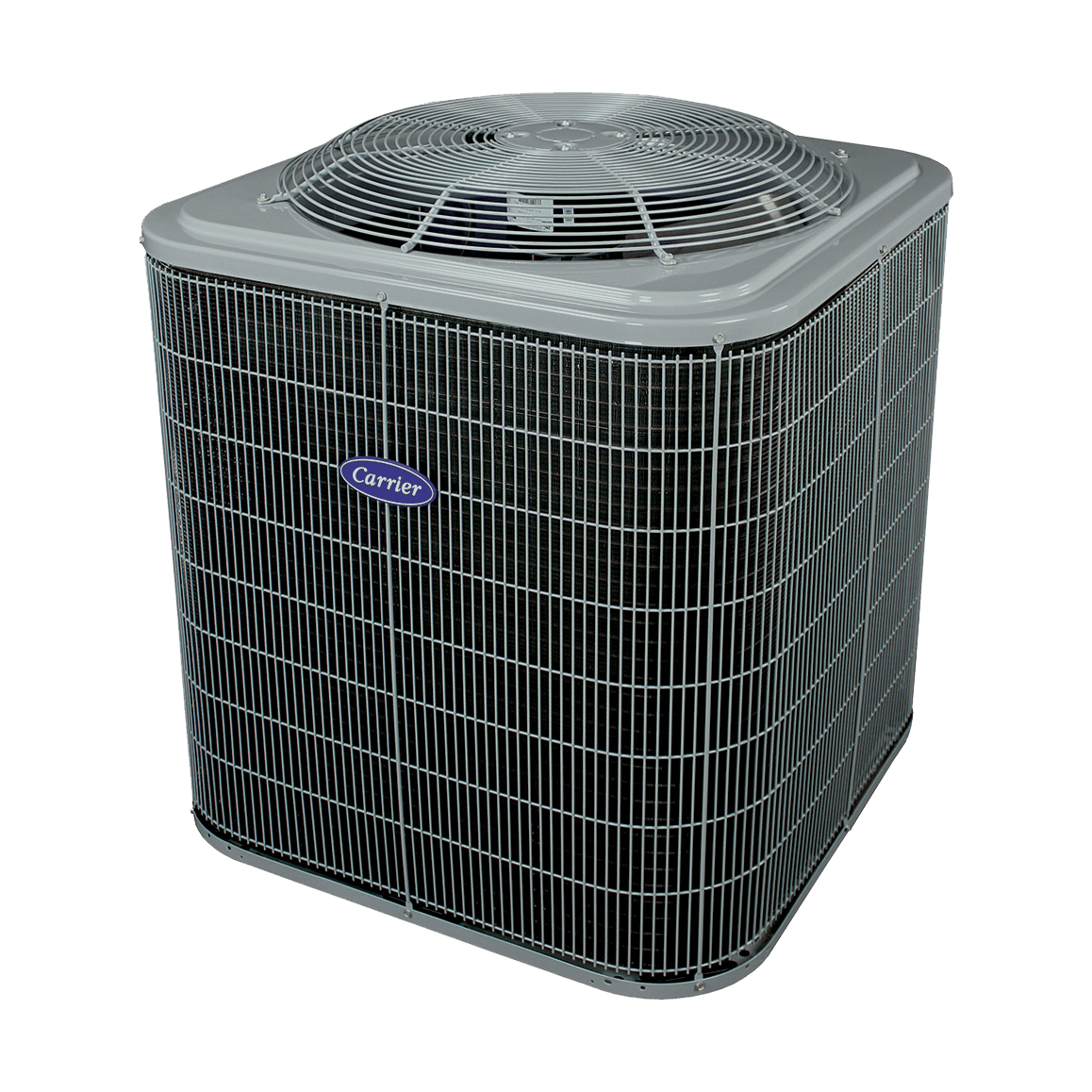
Up to 16 SEER2 for moderate energy savings with standard comfort features.
Initial Cost $
Energy Savings:
Comfort Features:
Sound Performance:
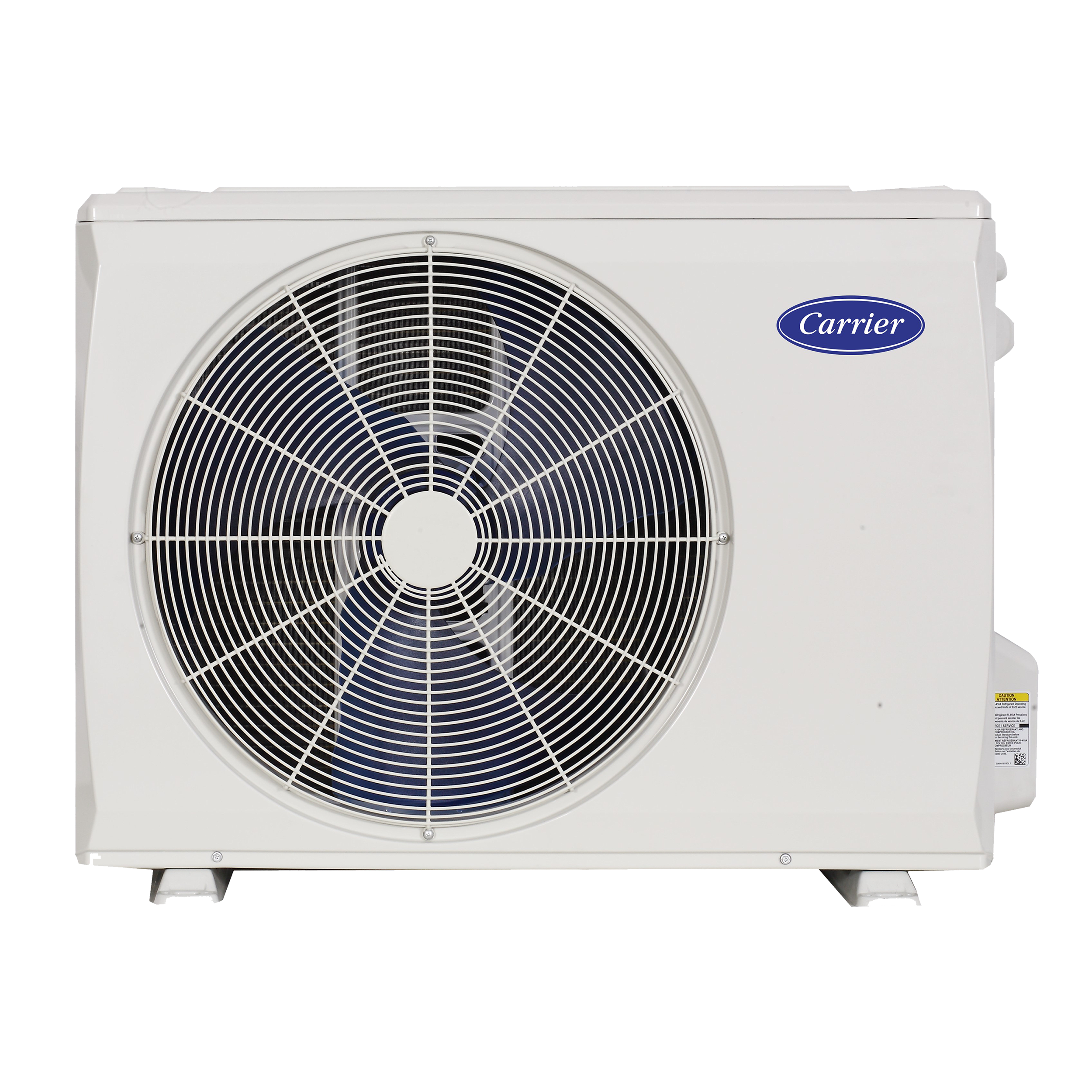
Up to 18.8 SEER2 for premium energy savings with standard comfort features.
Initial Cost $$
Energy Savings Enhanced
Comfort Features Standard
Sound Performance Standard
What to Look for in a Heat Pump
Comfort Features
Heat pumps vary in the number of stages or speeds they offer. Different speeds, or stages, can affect your comfort and the consistency of indoor temperature. The most basic is a single-stage heat pump, with airflow on or off, which can cause fluctuations to your indoor temperature and comfort. Two-stage models offer high- and low-stage heating and cooling to more efficiently heat or cool your space when outdoor weather changes to very cold or very hot conditions. These advanced features can provide more consistent comfort levels than a single-stage model. Premium, variable-speed heat pumps have multiple stages for more precise temperature control and more consistent comfort.
Humidity Control
One way to dramatically improve your home’s comfort is to keep indoor humidity levels steady throughout the year. Two-stage and variable speed heat pumps offer better control because they operate for a longer period of time at lower speeds and use less energy. These pull more humidity out of the air than models with a single-stage compressor.
Sound Performance
Variable-speed and two-stage models provide ultra-quiet operation compared to models with single-stage compressors. In addition, heat pumps that include sound blankets and our Silencer System II™ design can further reduce sound levels.
Energy Savings
Heat pumps are rated by their Heating Seasonal Performance Factor (HSPF2), which is a measure of a heat pump's overall energy efficiency during the heating season, their Seasonal Energy Efficiency Ratio (SEER2) and their Energy Efficiency Ratio (EER2). These ratings are similar to miles per gallon (MPG) for a car: the higher the rating, the more energy-efficient the system.
Another energy saving option is investing is a geothermal heat pump, which delivers energy-efficient performance to give you comfortable indoor comfort.
Reliability
Finding a reliable heat pump is crucial for reducing maintenance costs and increasing the longevity of the system. Carrie heat pumps are high-quality and designed with durable components that are less likely to break down, minimizing the frequency and cost of repairs. Additionally, a dependable heat pump can operate more efficiently, which may extend the life of the unit by reducing wear and tear and help maintain consistent performance over time. This reliability and efficiency translate into fewer disruptions and long-term savings on maintenance expenses.
Which Heat Pump is Right for Your Home?
RESIDENTIAL HEAT PUMP SYSTEM FOR ANY HOME – ANY BUDGET
Carrier offers a wide selection of heat pumps or a heat pump system to virtually any home or budget. With a variety of options available from the Infinity, Performance, and Comfort series, you are sure to find the right option to keep your home comfortable. Contact a local Carrier HVAC expert to help choose the best cooling and heating systems for your needs.
Energy Efficient Electric Heat Pumps
Many Carrier residential heat pumps are Energy Star® qualified, providing energy efficient heating or cooling for your home. A local Carrier expert can help you choose a heat pump system with an impressive HSPF and SEER rating that might qualify for local utility rebates.
What Does a Heat Pump Do?
Wondering, what is a heat pump? You’re not alone – it’s a common question. An air source heat pump is a versatile heating and cooling system that utilizes an air handler to move heat from one place to another. In the summer, heat pumps work by moving heat from inside your house to an outdoor unit, efficiently cooling your home. In the winter months, a heat pump reverses the process, drawing heat from outside air (yes, even when it is cold outside there is heat in the air) and releasing it inside to heat your home.
The Difference Between a Heat Pump and Air Conditioner
A heat pump is an alternative to an air conditioner. As cooling systems, an air conditioner and a heat pump system are very similar, drawing heat from the air inside your home and releasing it through an outdoor unit. But, unlike air conditioning, a heat pump can reverse the process, heating your home by collecting heat from seemingly cold outside air and releasing it inside. Learn more about the difference of a heat pump vs air conditioning.
WHAT ARE SEER2, EER2, AND HSPF2 RATINGS?
Starting January 1, 2023, the Department of Energy (DOE) is requiring new testing procedures for determining efficiency ratings on split system heat pumps. The Seasonal Energy Efficiency Ratio (SEER and SEER2), Heating Seasonal Performance Factor (HSPF and HSPF2), and Energy Efficiency Ratio (EER and EER2) are three efficiency standards for HVAC systems set by the Department of Energy. These ratios are calculated by using strict testing procedures that are determined by the Department of Energy. The DOE is updating these efficiency standards to SEER2, EER2, and HSPF2 on January 1, 2023, to account for more accurate testing conditions that better represent real operating conditions and will be required for all equipment manufactured and installed on or after January 1, 2023.
CARRIER HEAT PUMPS AND THE NEW SEER2, EER2, AND HSPF2 RATINGS
As part of our ongoing commitment to creating energy-efficient heating and cooling systems, we will be introducing all new heat pumps that are compliant with the upcoming 2023 Department of Energy minimum efficiency requirements. These new heat pumps will all be tested under the new testing procedures and have SEER2, EER2, and HSPF2 ratings published. Our Performance 18 heat pump is among the first in a line of products that meet the new 2023 DOE efficiency standards. Carrier will offer a full line of heating and cooling products that meet the new criteria this year, ahead of the January 1, 2023 deadline as part of its #2023READY initiative.
IS HEAT PUMP BETTER THAN AC?
When deciding whether a heat pump is better than an air conditioner (AC), it's important to consider both cooling and heating capabilities. In cooling mode, when comparing similar models, a heat pump and an AC typically offer a similar level of efficiency. This means that during the warmer months, both systems are equally effective at cooling your home. However, the advantages of a heat pump become more apparent in colder weather. Unlike a traditional AC, which only cools, a heat pump can also heat your home by extracting heat from the outside air, even in cold temperatures. This dual functionality makes heat pumps more versatile. Additionally, in heating mode, heat pumps can be more efficient than traditional fossil fuel-based heating systems. This increased efficiency can lead to significant energy savings, especially in regions with moderate to mild winters. Therefore, if you require both heating and cooling in your home, a heat pump could be a more effective and energy-efficient option than an AC paired with a separate fossil fuel heating system.
WHAT IS THE TYPICAL COST OF A HEAT PUMP?
The cost to replace or install a heat pump typically varies and is set by the local HVAC dealer. This final price is influenced by several factors such as the local market conditions, the specific needs of the home, and the regional climate. Additionally, the type of system chosen affects the cost. For instance, Carrier® heat pumps come with different features including various energy efficiency ratings like SEER2 and HSPF2, a range of comfort-enhancing technologies, and even sound ratings. Depending on these factors, the installation costs can range anywhere from $3,000 to $15,000 or more.
DO HEAT PUMPS USE A LOT OF ELECTRICITY?
Heat pumps typically can use between 6,176 and 10,244 kilowatt hours (kWh) per year, depending on several factors.1 The energy consumption of a heat pump is influenced by the size of the unit, the efficiency rating (such as SEER2 and HSPF2 ratings), and the specific heating and cooling needs of the home. Additionally, the climate of the area plays a significant role; regions with more extreme temperatures may require the heat pump to work harder, thereby increasing energy use. The insulation and overall energy efficiency of the home also impact how much energy the heat pump needs to maintain comfortable indoor temperatures. These variables make it important to choose a heat pump that is appropriately sized and rated for your home's specific conditions to optimize energy use.
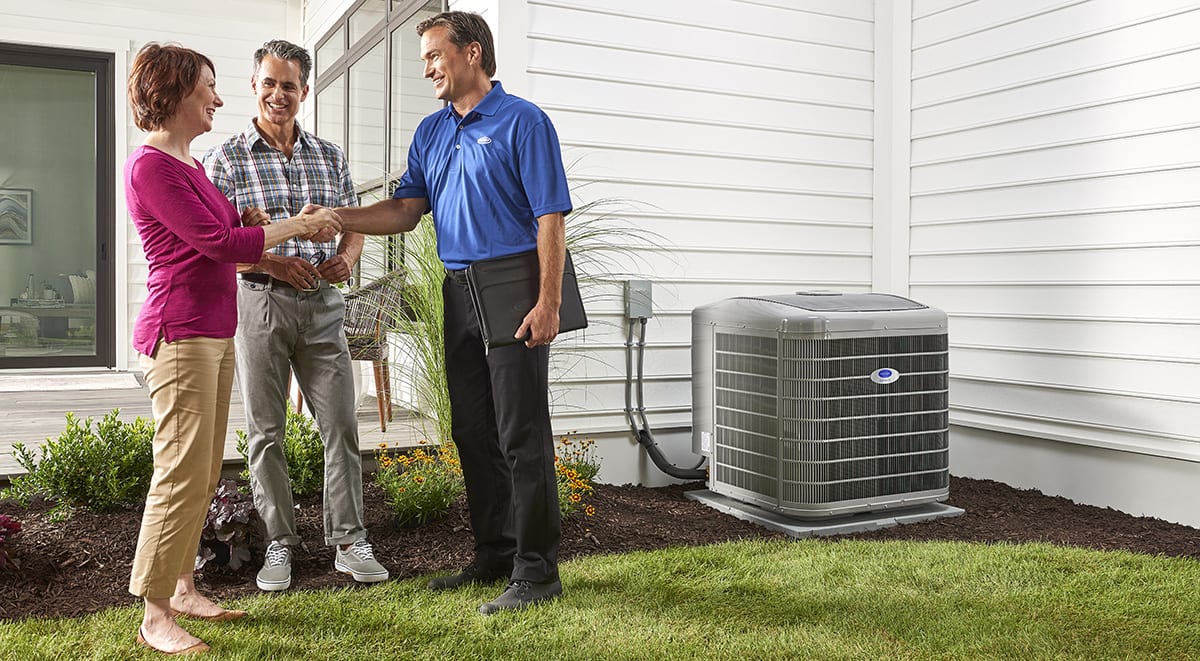
Learn More About Heat Pumps
- Find a Heat Pump expert in your area
- Get information about the Cost of a Heat Pump
- Find out “How Does a Heat Pump Work?”
- Learn the difference between Heat Pumps vs Air Conditioning
- Let's start with the basics - What is a Heat Pump?
- Learn about Heat Pump Efficiency and SEER Ratings
- Learn about Heat Pump Troubleshooting
- Have hot or cold spots in your home? Consider installing a ductless mini split
- Browse heating and cooling products
- Browse air conditioning systems
- Best temperature for AC
- What temperature should I set my thermostat
- Heat Pump Not Heating Or Cooling
- Heat pump Service
- 3 Reasons To Consider A Heat Pump
- Heat Pumps: A Sustainable Comfort Solution
- Discover heat pump tax credits
- In need of heat pump repair?
- Learn about heat pump installation
- How much will a heat pump increase my electric bill?
- Get in the know on cold climate heat pumps
- Learn if you need a 3 ton heat pump
